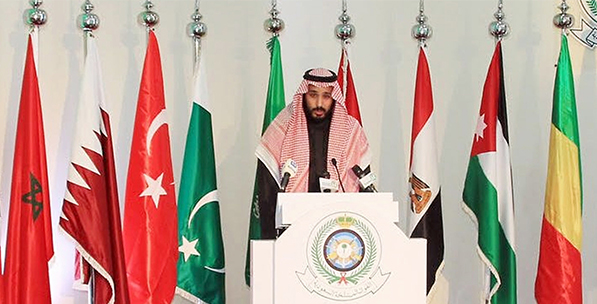U.S. Secretary of State John Kerry last week met with Russian President Vladimir Putin in Moscow to continue dropping hints that the White House and the Kremlin have struck a secret deal on Syria. By conveniently ignoring the question of Syrian President Bashar Assad's future for the time being, the two governments have made significant progress in the negotiations.
It is a thinly veiled secret that Washington has no problem with Russian airstrikes targeting various groups, including moderate rebels. As a matter of fact, it was hardly a coincidence that the Russian air force interfered in the Syrian civil war days after a meeting between U.S. President Barack Obama and Putin.
The most recent meetings between Russia and the United States have established that the two countries will play a prominent role in determining the future of Syria and Iraq. Moving forward, Washington and Moscow expect to decide which actor(s) will defeat DAESH on the ground and create a new balance of power in the Middle East. It would appear that the two governments have agreed to continue launching airstrikes and rely on a combination of regime fighters, the Kurdistan Regional Government's (KRG) peshmerga forces, Shiite militias and the Democratic Union Party's (PYD) armed People's Protection Units (YPG) to bring DAESH down.
At this point, the main question relates to the future role of regional powers, including Turkey, Saudi Arabia and Iran, which has a stronger hand than Ankara and Riyadh. There is a good chance that Russia and the United States would like them to play a secondary role.
For Turkey, the Syrian crisis has been a source of tension with the United States. Having refused to enforce American power on the ground, Ankara encountered a series of problems with Washington. The train-and-equip program's failure, U.S. support for PYD forces and the Obama administration's unwillingness to help create a safe zone in northern Syria come to mind. The White House has even exploited the crisis that emerged after Turkey shot down a Russian jet to pressure Ankara into closer cooperation with NATO to prevent Turkey's unilateral moves such as the troop deployment to the Bashiqa camp near Mosul, Iraq. At the same time, Washington remains capable of taking steps to keep Russia in line. For example, the Obama administration might be willing to turn a blind eye to Turkish action against the PYD in northern Syria if the organization further strengthens its ties with Moscow.
The ongoing civil wars in Syria and Iraq, however, represent an infinitely more serious challenge for Saudi Arabia. After making more frequent references to DAESH in recent months, Riyadh has moved to form a 34-member international coalition in an effort to stay relevant. Considering that Saudi King Salman faces resistance at home, Saudi Arabia's newest initiative also represents an effort to promote unity among its citizens.
Ultimately, however, the project is unlikely to become a formidable military force anytime soon. Neither Turkey, nor Pakistan nor Egypt are in a position to commit fighters to the Saudi-led coalition. Having refused to participate in airstrikes in Yemen, Pakistan has no reason to reconsider its position. Keeping in mind that the government of Egyptian President Abdel-Fattah el-Sissi enjoys close relations with Moscow and problems persist between Egypt and Saudi Arabia, there is no reason to believe that Cairo will make a commitment to the coalition. Turkey, in turn, has no troops to spare at this time.
Simply put, the fact that regional powers have been able to create a modest framework alone deserves some credit. They could, after all, help develop an Islamic language to discredit radical groups' terrorist agendas.
[Daily Sabah, December 22, 2015]







